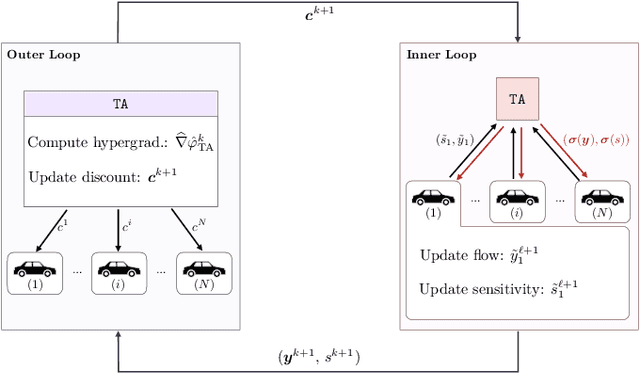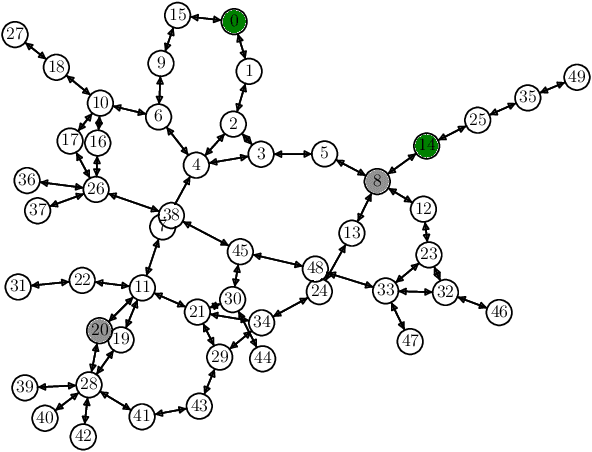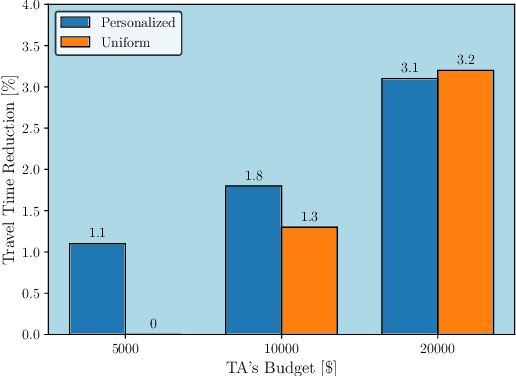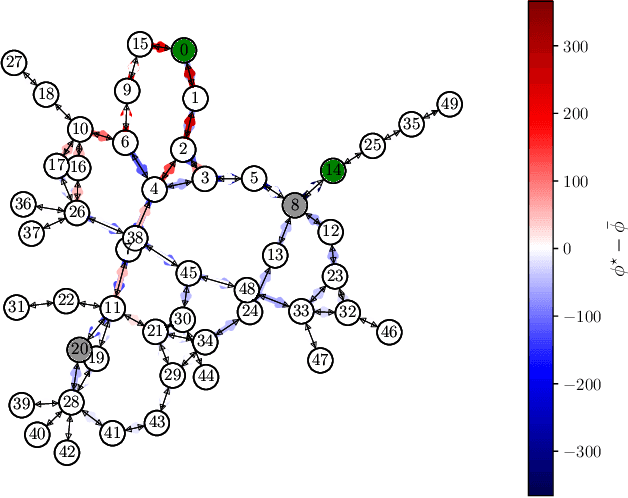Carlo Cenedese
Urban traffic congestion control: a DeePC change
Nov 16, 2023



Abstract:Urban traffic congestion remains a pressing challenge in our rapidly expanding cities, despite the abundance of available data and the efforts of policymakers. By leveraging behavioral system theory and data-driven control, this paper exploits the DeePC algorithm in the context of urban traffic control performed via dynamic traffic lights. To validate our approach, we consider a high-fidelity case study using the state-of-the-art simulation software package Simulation of Urban MObility (SUMO). Preliminary results indicate that DeePC outperforms existing approaches across various key metrics, including travel time and CO$_2$ emissions, demonstrating its potential for effective traffic management
Designing Optimal Personalized Incentive for Traffic Routing using BIG Hype algorithm
Apr 24, 2023



Abstract:We study the problem of optimally routing plug-in electric and conventional fuel vehicles on a city level. In our model, commuters selfishly aim to minimize a local cost that combines travel time, from a fixed origin to a desired destination, and the monetary cost of using city facilities, parking or service stations. The traffic authority can influence the commuters' preferred routing choice by means of personalized discounts on parking tickets and on the energy price at service stations. We formalize the problem of designing these monetary incentives optimally as a large-scale bilevel game, where constraints arise at both levels due to the finite capacities of city facilities and incentives budget. Then, we develop an efficient decentralized solution scheme with convergence guarantees based on BIG Hype, a recently-proposed hypergradient-based algorithm for hierarchical games. Finally, we validate our model via numerical simulations over the Anaheim's network, and show that the proposed approach produces sensible results in terms of traffic decongestion and it is able to solve in minutes problems with more than 48000 variables and 110000 constraints.
Optimal service station design for traffic mitigation via genetic algorithm and neural network
Nov 18, 2022Abstract:This paper analyzes how the presence of service stations on highways affects traffic congestion. We focus on the problem of optimally designing a service station to achieve beneficial effects in terms of total traffic congestion and peak traffic reduction. Microsimulators cannot be used for this task due to their computational inefficiency. We propose a genetic algorithm based on the recently proposed CTMs, that efficiently describes the dynamics of a service station. Then, we leverage the algorithm to train a neural network capable of solving the same problem, avoiding implementing the CTMs. Finally, we examine two case studies to validate the capabilities and performance of our algorithms. In these simulations, we use real data extracted from Dutch highways.
 Add to Chrome
Add to Chrome Add to Firefox
Add to Firefox Add to Edge
Add to Edge